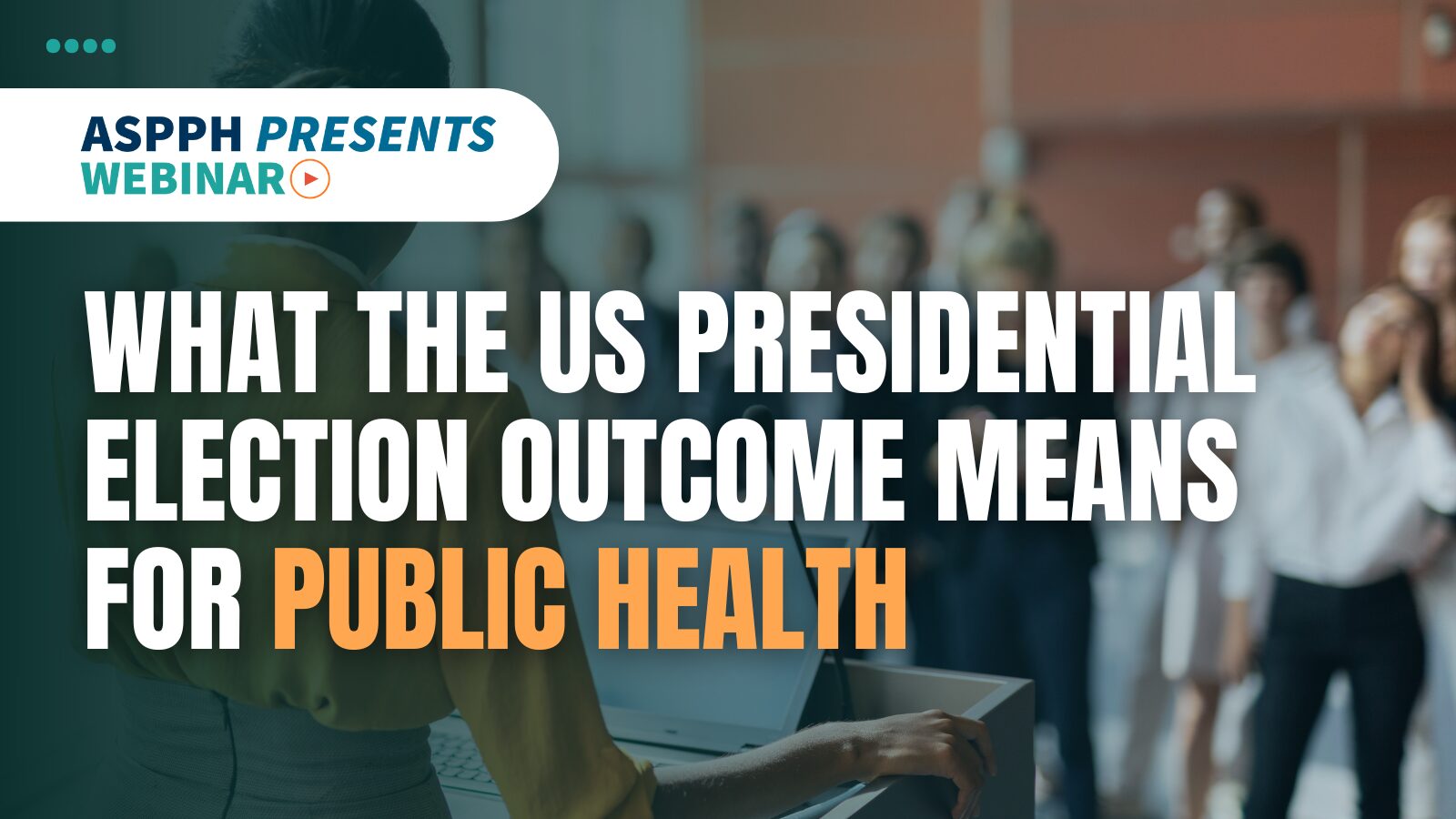On November 13, 2024, more than 900 attendees joined the ASPPH Presents webinar What the US Presidential Election Outcome Means for Public Health. Tim Leshan, Chief External Relations and Advocacy Officer at ASPPH, moderated the event, which featured distinguished panelists Dr. Ali Khan, Dean of the University of Nebraska Medical Center College of Public Health; Megan Messerly, Politics Reporter at POLITICO; and Mark Mioduski, Principal at Cornerstone Government Affairs.
The webinar began with a comprehensive overview of the recent election results, setting the stage for an in-depth panel analysis of their implications on public health policy, federal funding, and regulatory frameworks.
Dr. Khan emphasized the importance of maintaining public health’s core mission, regardless of the political landscape. Quoting EB White, he stated, “Democracy is not a form of government, it’s a way of life,” urging continued commitment to improving the health of all communities. He encouraged public health institutions to remain nonpartisan while engaging in essential political dialogue.
Dr. Khan also outlined potential focal points for the new administration, including maternal and child health, substance use disorder management, obesity prevention, mental health, and rural health initiatives. He expressed cautious optimism about the potential prioritization of pandemic preparedness, citing lessons learned from past challenges. He also reminded the audience that public health isn’t the opposition but rather partners, ready to work alongside any administration to promote the well-being of all.
Mark Mioduski underscored the uncertain future of funding for agencies like NIH and CDC, highlighting that previous budget proposals from Congress included substantial cuts, such as the elimination of key CDC programs. He pointed out the potential consequences of restructuring initiatives and stressed the importance of advocating for essential programs, noting, that we might see significant changes that redefine public health efforts unless academic public health advocates engage actively.
Megan Messerly added perspective on the political dynamics at play, noting that the landscape is rapidly evolving. She underscored that while public health has been politicized, there are bipartisan opportunities, especially with programs impacting rural health and chronic diseases. Messerly emphasized the need for clear, inclusive messaging, highlighting that terms like “health equity” could be communicated in ways that resonate across political lines.
The webinar concluded with an engaging Q&A, underscoring ASPPH’s commitment to our mission and guiding academic public health education and advocacy through pivotal political transitions, as highlighted in our President’s recent message.
View a recording of the recent webinar and learn more about the ASPPH Presents webinar series for the remainder of Fiscal Year 2025.





